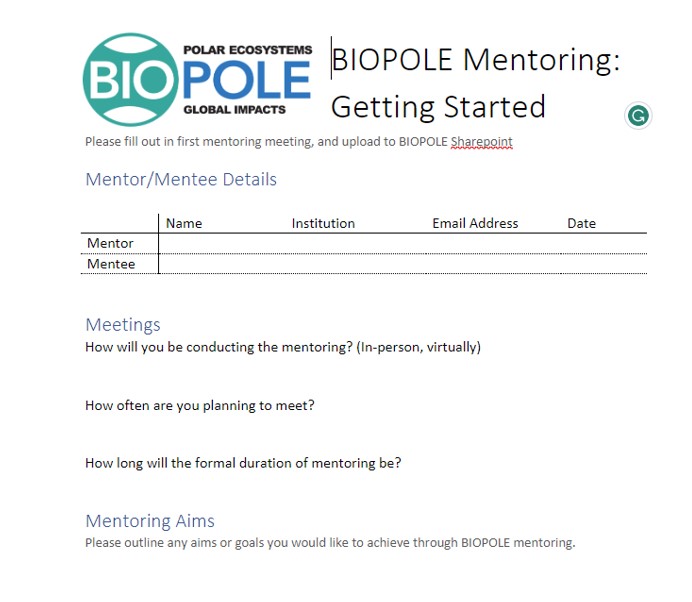The BIOPOLE mentoring scheme is ready to launch and aims to support BIOPOLE’s Early Career Researchers (ECRs) with their academic progression and/or professional development.
Academics who have been mentored are more likely to be promoted, demonstrate increased self-efficacy in teaching and research and obtain more grant income (Shellock et al. 2023). Mentoring was also highlighted as a key strategy for retaining women ECRs in academia and forging a path for women to take up leadership positions (Shellock et al. 2023). It has also been highlighted that the COVID-19 pandemic has curtailed opportunities for ECRs and mentoring is one way to expand skills and networks that were more challenging to develop throughout the pandemic (Fisher et al. 2021). This was part of the motivation for starting the BIOPOLE mentoring scheme as well as to provide an opportunity for ECRs to engage with mentors outside of their home institution and subject-specific networks to experience different perspectives on their career development and trajectories.
The BIOPOLE mentoring scheme is open to all BIOPOLE’s ECRs (self-defining) and will be coordinated by the BIOPOLE ECR network and the Executive Board. We are very keen to engage BIOPOLE stakeholders in the mentoring scheme, both to act as mentors or for stakeholders ECRs to engage as a mentee. We are also in the process of connecting to other broader mentoring schemes – watch this space!
The mentoring scheme will be flexible depending on the aim(s) that the mentee would like to work towards and we advise that during the first meeting the mentor and mentee agree the frequency of meetings, the aim(s) to focus on and the length of the mentoring period. We suggest a minimum of a 3 month mentoring period. We are encouraging mentees to develop an initial aim to allow for a good match to a mentor and this can be revised during the first mentoring meeting. The mentee should be proactive in the process, such as scheduling meetings and setting an agenda. The meetings can be held virtually or in person depending on the locations of the mentor/mentee. If it is found that the mentoring isn’t working for either party then the mentoring period can be ended early. In contrast, if the mentorship has been beneficial the mentor and mentee can agree to extend the mentoring period either formally and informally. There are three documents prepared that include further guidance, a form to complete at the beginning of a mentoring period and a feedback form to complete at the end of the formal mentoring period.
We are hoping for the BIOPOLE mentoring scheme to be a great success and a memorable achievement of the project! If you would like to sign up as a mentor or mentee and/or would like to access the BIOPOLE mentoring scheme documents please get in touch with the BIOPOLE ECR representative (2023-24) Chelsey Baker at chelsey.baker@noc.ac.uk.
The authors of the blog – Chelsey Baker (National Oceanography Centre) and Amy Swiggs (Northumbria University)

